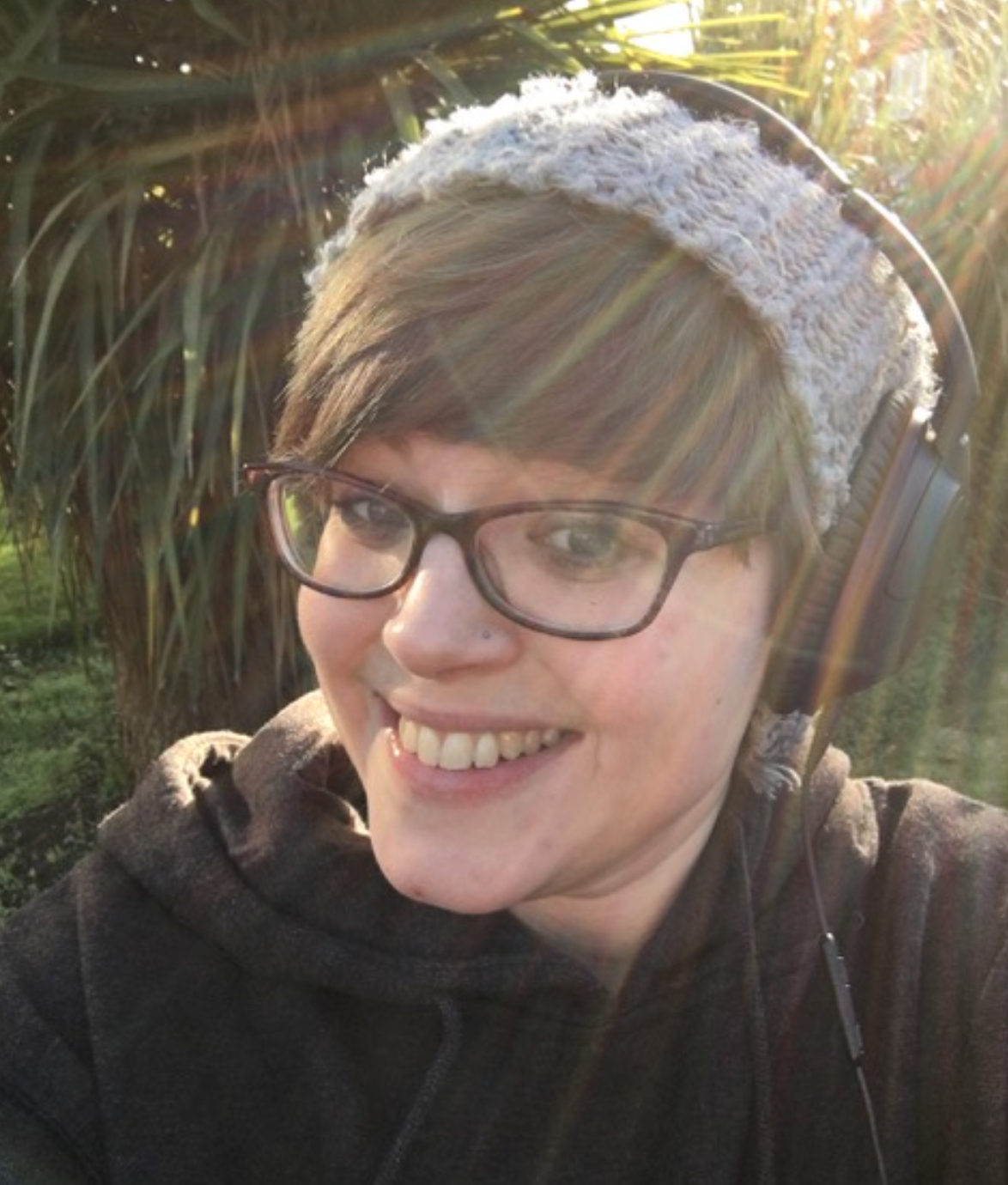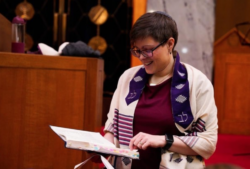Researcher of the Month, February 2024: Rabbi Robyn Ashworth-Steen

Tell us a little about your research journey – how did you get to where you are right now?
There are many different narratives and beginnings to those stories which could answer this question. One beginning could be when I was 11 years old, and I decided I wanted to be a rabbi. An unusual childhood dream! I loved being in community, taking part in rituals and the Jewish art of studying and asking questions. My religion demanded that I be curious and critical – two vital attitudes for research. Another beginning could be when I was studying Theology and Religious Studies at Cambridge University. I was on track towards rabbinic studies but studying religion in an academic setting was challenging. I was encouraged to be objective and removed from the texts which I was used to being in loving struggle with. I was yet to meet feminist biblical studies or liberation theology and could not find my footing in that world.
After university I re-trained to become a Human Rights lawyer and specialised in Asylum, Immigration and Public Law. Again, those skills of critical thinking, curiously, justice-seeking and diligence, were vital. The cuts in legal aid and the pull back to the rabbinate coincided and I chose to apply to Leo Baeck College (the UK’s progressive Jewish seminary). There I found my people and my discipline. Through teachers such as Rabbi Sheila Shulman (may her memory be for a blessing), Rabbi Dr Judith Rosen-Berry, Professor Melissa Raphael, and Rabbi Dr Deborah Kahn-Harris, I truly understood what critical iconoclastic thinking was. I was introduced to feminist, post-colonial, queer hermeneutics and I found my voice. My MA in Applied Rabbinic Theology was in Biblical Studies and shaping a Jewish activist reading of the Tanach.
Upon ordination I worked as a community rabbi and as the first female rabbi in Manchester. That experience led me to reflect, very deeply, on the chasm between the world we live in and the world as it could be. I thought about leadership – the strictures of the role of a community rabbi and especially a female rabbi. During my years as a community rabbi, I continued to write and had a couple of pieces of work published which further strengthened my academic voice. Last year, I decided to dive in and applied for a PhD with Professors Johanna Stiebert, Emma Tomalin, and Rabbi Dr Deborah Kahn-Harris as my supervisors.

What are you currently, or about to start, working on?
My thesis tackles the question of female prophecy and female religious leadership. One of the theological pillars of Progressive Judaism is that we practise a prophetic Judaism: Judaism that seeks justice, that understands we are responsible in the work of tikkun olam (repairing a broken world). Yet, when we turn to the texts of the prophets, we see that they are often men, and men who suffer, are isolated and whose teachings are deeply misogynistic. If we found our leadership style and theology on these prophets what does that say about the current state of the rabbinate and religion?
Rabbinic contracts demand an immersive work pattern with 6 days a week common, and with weekend and evening work expected. The challenges can be great, and rabbis become burnt-out and lonely. I believe this reality is particularly intense for female rabbis given that the role they fit into is latently a male one. I am particularly interested, at the moment, in Elisabeth Schüssler Fiorenza’s work on the ‘resident alien’. I am seeking to explore the precarity of being a female rabbi and the work involved in being accepted and the sacrifices made. I am also interested in the power of being on the margins and particularly the concept Hannah Arendt explored of being a ‘conscious pariah’. What can it mean to use one’s marginality to create change and seek justice?
My work will involve exploring marginal female biblical characters who have not, traditionally, been named as prophets. I will look at how, in a deeply patriarchal landscape, they navigated surviving and leading in such a world. I am keen to follow the work of Rabbi Sheila Shulman and read these biblical characters together to form a type of prophetic band and reclaim and reshape the idea of prophecy away from the individual male prophet and towards a dialogic, relational, powerful community of marginal characters. I will then conduct social research through interviews and focus groups with female rabbis to see whether this prophetic vision can help re-shape the role as it currently stands.
In what way(s) do you feel your research examines the role of religion in public life and the relationship between the two?
As my research focuses on female prophecy and female rabbis, it sits at the heart of religion in public life. Prophets are understood to be, alongside priests, the epitome of religious authority. Their words shape worlds. They envision a world that can be so much more than the broken one we reside in and on. Prophets, at their best, speak to the possibility of how we can live holy lives together, both in the private and public realm. Rabbis, at their best, can guide others, in community, to live lives of justice and towards liberation.
